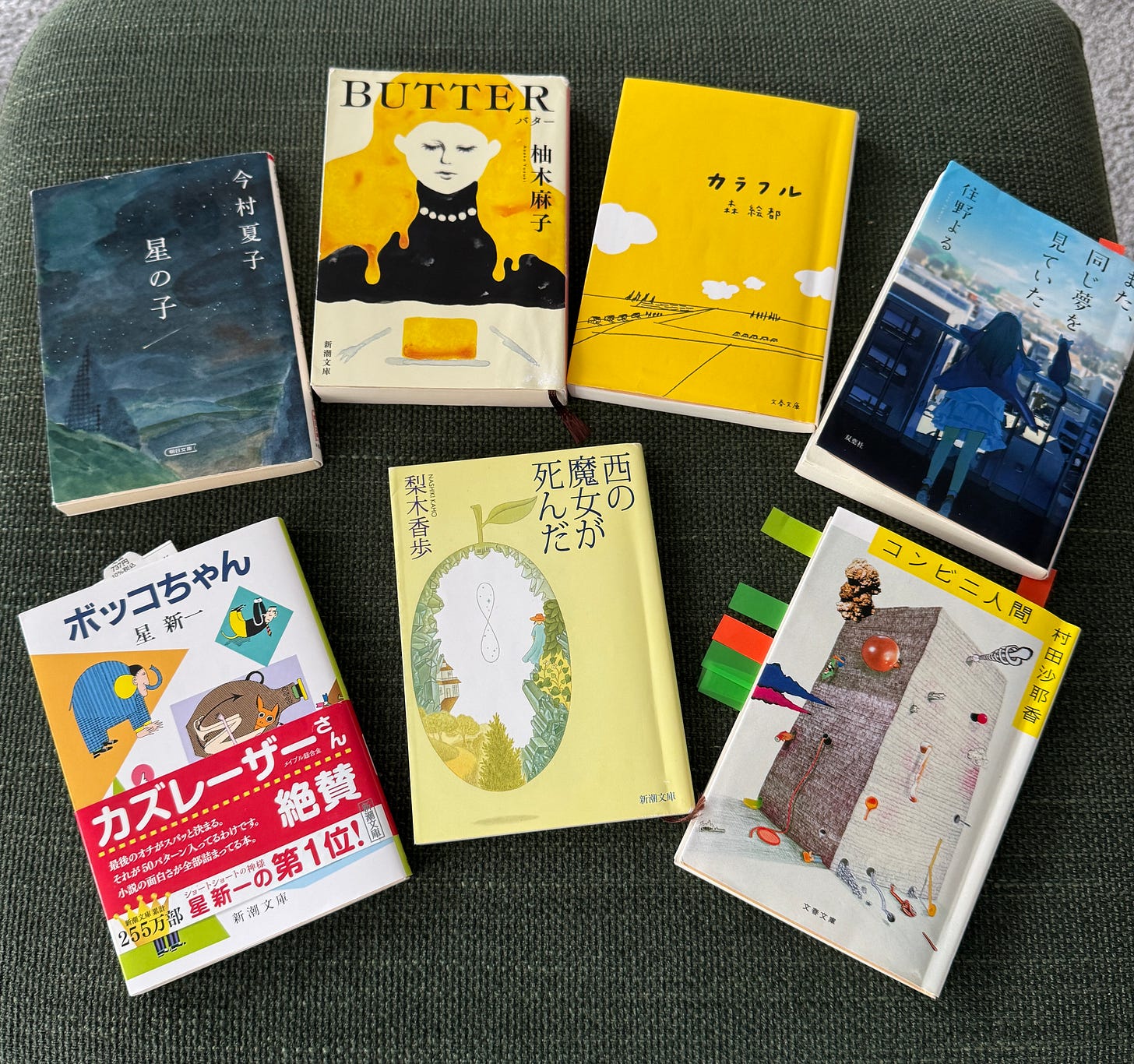いつも読んでくれてありがとうございます。今日は英語の記事です。
みなさんの勉強ルーティンに、「本を読む」習慣がありますか?
We live in a world full of language apps, podcasts, and online courses that promise to boost your Japanese. These tools are helpful, of course but there’s one timeless resource that can elevate your learning in a way nothing else can: books.
Far from being an old-fashioned method, reading brings you into the world of stories, voices, and emotions. Books connect vocabulary, grammar, and culture in a natural flow that digital tools can’t fully replicate. As your Japanese coach, I want to show you why reading can become a turning point in your Japanese learning journey.
From Words on a Page → to Living Japanese「生きた日本語に」
When you study with flashcards, words can feel like isolated knowledge. But when those same words appear in a novel, manga, or essay, they come alive. They’re tied to emotions, relationships, and situations.
For example, Reading helps you absorb:
Natural speech patterns: how people speak differently depending on age, gender, or role.
Phrases and onomatopoeia: 「耳が痛い*」「バタバタ」expressions that make Japanese sound real and vibrant.(*The phrase “耳が痛い” literally means “my ears hurt,” but it’s used figuratively. It describes the feeling when someone says something that hits too close to home - a truth or criticism that is uncomfortable to hear because it applies to you. It’s similar to saying “That stings” or “That hits a sore spot” in English.)
Cultural nuance: words like おみやげ or seasonal traditions that anchor you in Japanese life.
In short, words stop being “just words.” They become part of your lived Japanese. つまり、言葉はただの「言葉」ではなくなり、生きた日本語の一部になっていきます。
Grammar That Clicks
Grammar often feels like a wall. But reading turns that wall into a doorway.
As you encounter the same sentence patterns again and again, your brain begins to feel what’s right without memorising every rule. It’s like your brain installs grammar in the background: what once felt mechanical begins to flow naturally. 気がつけば脳が文法を自然に取り込んでいて、これまで「考えながら使っていた文法」が、スッと自然に使えるようになっていきます。
This shift from thinking about grammar to feeling it is one of the most powerful outcomes of steady reading.
Stories Build More Than Language
Stories are not just entertainment. They develop empathy, imagination, and cultural awareness. When you read Japanese stories, you don’t just learn the language. You start to see the world through Japanese perspectives. 日本人ならではの物の見方で世界が見えてくるようになります。
That’s why reading strengthens not only speaking or writing, but your overall Japanese mindset. You begin to think, notice, and feel in Japanese.
For Beginners: Start Small, Start Joyful
I know some of you dream of tackling Haruki Murakami. One day, yes! But don’t pressure yourself to start there. If your first book feels impossible, frustration will win.
👉 Instead, choose books you can enjoy:
Graded readers (やさしい日本語の本)
Manga with ふりがな
Short stories with audio support
Pair books with technology, extensions that add furigana, instant kanji readers, or audiobooks - to make the experience smoother.
Remember: the key is joy. When you enjoy the process, you’ll naturally build a sustainable habit.
おすすめのWebsite
おすすめのapp (only in Apple store)
私がよく使っているGoogle Chrome Extension
Books as Your Best Coach
There are no shortcuts in Japanese learning. But reading is one of the most enjoyable and comprehensive paths you can take.
Books don’t just give you vocabulary and grammar. They give you access to emotions, culture, and identity. They help you grow in every skill, listening, speaking, writing, and above all, thinking in Japanese.
So let’s make reading part of your journey. Pick up a book, dive into a story, and let Japanese come alive for you.
今日もコツコツ、がんばりましょう 📚✨
もしよかったら、9月28日から始まるCommunity Reading Challengeに参加しませんか。





I also spotted my all-time favorite book in the picture — ボッコちゃん!! Do let me know your thoughts about it when you have some free time, Norikoさん 🙂
Wow, this really resonated with me!! I actually started reading thanks to the Japanese Together challenge. At first it felt so hard, but little by little the grammar started to “click,” just like you described. I can’t quite call myself a reader in Japanese yet, but thanks to this challenge, I definitely had an eye-opening experience!